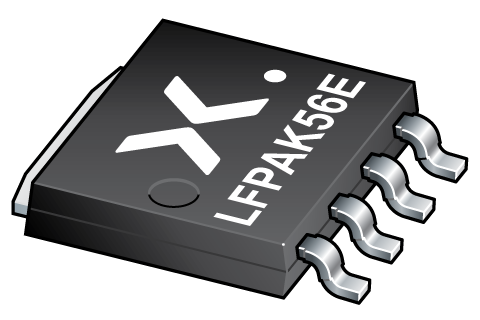
Register once, drag and drop ECAD models into your CAD tool and speed up your design.
Click here for more informationPSMN4R1-80YSF
参数类型
| 型号 | Package version | Package name | Product status | Channel type | Nr of transistors | VDS [max] (V) | RDSon [max] @ VGS = 10 V (mΩ) | Tj [max] (°C) | QGD [typ] (nC) | QG(tot) [typ] @ VGS = 10 V (nC) | Ptot [max] (W) | Qr [typ] (nC) | VGSth [typ] (V) | Automotive qualified | Ciss [typ] (pF) | Coss [typ] (pF) | Release date |
|---|---|---|---|---|---|---|---|---|---|---|---|---|---|---|---|---|---|
| PSMN4R1-80YSF | SOT1023 | LFPAK56E; Power-SO8 | End of life | N | 1 | 80 | 4.1 | 175 | 19 | 79 | 294 | 97 | 3 | Y | 5057 | 2289 | 2018-07-10 |
封装
下表中的所有产品型号均已停产 。
| 型号 | 可订购的器件编号,(订购码(12NC)) | 状态 | 标示 | 封装 | 外形图 | 回流焊/波峰焊 | 包装 |
|---|---|---|---|---|---|---|---|
| PSMN4R1-80YSF | PSMN4R1-80YSFX (934660711115) |
Obsolete | 4F1S80J |

LFPAK56E; Power-SO8 (SOT1023) |
SOT1023 |
REFLOW_BG-BD-1
|
SOT1023_115 |
文档 (8)
| 文件名称 | 标题 | 类型 | 日期 |
|---|---|---|---|
| AN90032 | Low temperature soldering, application study | Application note | 2022-02-22 |
| AN90063 | Questions about package outline drawings | Application note | 2025-03-12 |
| SOT1023 | 3D model for products with SOT1023 package | Design support | 2017-06-29 |
| Nexperia_package_poster | Nexperia package poster | Leaflet | 2020-05-15 |
| LFPAK56_SOT1023_mk | plastic, single-ended surface-mounted package (LFPAK56); 4 leads; 1.27 mm pitch; 4.58 mm x 5.13 mm x 1.03 mm body | Marcom graphics | 2017-01-28 |
| SOT1023 | plastic, single-ended surface-mounted package (LFPAK56E); 4 leads; 1.27 mm pitch | Package information | 2024-08-28 |
| REFLOW_BG-BD-1 | Reflow soldering profile | Reflow soldering | 2021-04-06 |
| TN00008 | Power MOSFET frequently asked questions and answers | Technical note | 2024-08-09 |
Longevity
The Nexperia Longevity Program is aimed to provide our customers information from time to time about the expected time that our products can be ordered. The NLP is reviewed and updated regularly by our Executive Management Team. View our longevity program here.
模型
| 文件名称 | 标题 | 类型 | 日期 |
|---|---|---|---|
| SOT1023 | 3D model for products with SOT1023 package | Design support | 2017-06-29 |
How does it work?
The interactive datasheets are based on the Nexperia MOSFET precision electrothermal models. With our interactive datasheets you can simply specify your own conditions interactively. Start by changing the values of the conditions. You can do this by using the sliders in the condition fields. By dragging the sliders you will see how the MOSFET will perform at the new conditions set.